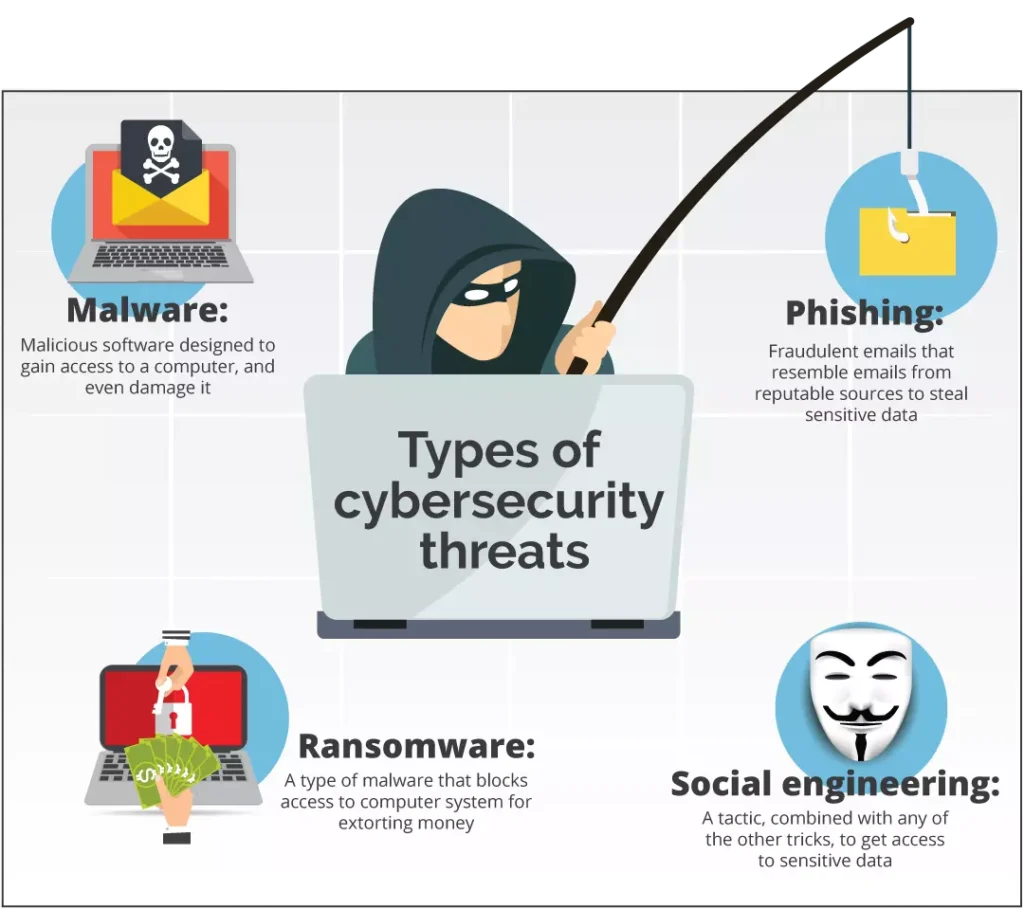Small and medium-sized businesses (SMBs) play a crucial role in the global economy, driving innovation and job creation. However, they are increasingly becoming targets for cyberattacks due to their limited resources and lack of robust security measures. This blog post explores how Managed Security Services (MSS) can empower and safeguard SMBs against cyber threats and vulnerabilities.
In 2022, the Managed Security Services Market’s revenue size was about $27.7 billion, and it is expected to reach around $49.6 billion by the end of 2027, showing a growth rate of 12.3%.
Contents
- 1 What About Managed Security Services (MSS)?
- 2 Identifying Security Challenges Faced by SMBs
- 3 The Role of Managed Security Services in Cyber Threat Detection
- 4 Proactive Vulnerability Management with MSS
- 5 Managing and Monitoring Network Security
- 6 Data Protection and Backup Solutions
- 7 Conclusion
- 8 FAQs
What About Managed Security Services (MSS)?
Managed Security Services (MSS) involve outsourcing cybersecurity functions to a third-party provider. This approach allows SMBs to focus on their core business activities while leaving the complex task of protecting their digital assets to the experts. MSS encompasses a range of security measures, including threat detection, incident response, security monitoring, and vulnerability assessments.
Managed Security Services providers offer various delivery models to suit the unique needs of different SMBs. Co-managed MSS allows businesses to work collaboratively with the provider, retaining some control over their security operations. On the other hand, fully outsourced MSS transfers the entire responsibility to the service provider, making it an attractive option for SMBs with limited IT resources.
One example of an MSS implementation is a small e-commerce company partnering with an MSS provider to secure its website and customer data. The MSS provider deploys firewalls and intrusion detection systems to monitor and block malicious activities. Additionally, the provider offers 24/7 monitoring and incident response services to address potential security breaches swiftly.
Identifying Security Challenges Faced by SMBs
SMBs encounter numerous cybersecurity challenges due to the growing sophistication of cyber threats and their limited security budgets. Cybercriminals often target SMBs with phishing attacks, ransomware, and data breaches, taking advantage of their potential vulnerabilities.

Figure 2: Security Threats
Images source: vendasta.com
For instance, a medium-sized manufacturing firm may fall victim to a phishing attack where an employee unknowingly clicks on a malicious link, granting hackers unauthorized access to the company’s internal network. Without proper security measures, the attackers can exploit the breach to steal valuable intellectual property or disrupt production processes.
The Role of Managed Security Services in Cyber Threat Detection
One of the key strengths of Managed Security Services lies in their ability to employ advanced technologies like artificial intelligence (AI) and machine learning for threat detection. These technologies analyse vast amounts of data in real-time, allowing MSS providers to identify potential threats before they escalate into full-scale attacks.
An MSS provider can utilize AI-powered algorithms to detect unusual network traffic patterns indicative of a Distributed Denial of Service (DDoS) attack. Upon detecting the threat, the provider can immediately trigger an automated response, such as diverting traffic to mitigate the attack’s impact.
Proactive Vulnerability Management with MSS
Managed Security Services offer proactive vulnerability management, which involves regular security assessments and scanning. These measures help identify weak points in an SMB’s infrastructure, promptly address them to prevent potential breaches.
Consider a small financial advisory firm that partners with an MSS provider to assess its security posture. The provider conducts vulnerability scans and identifies an outdated software component on the company’s web server. By promptly applying the necessary patch, the firm avoids falling victim to a known vulnerability that cyberattackers could have exploited.
Managing and Monitoring Network Security
MSS providers take charge of managing and monitoring network security for SMBs. They configure and maintain firewalls, intrusion detection systems (IDS), and virtual private networks (VPNs) to create secure network environments.
For instance, a technology startup adopts MSS to secure its remote workforce. The MSS provider sets up VPNs for secure remote access, ensuring employees can securely access company resources from any location without compromising sensitive data.
Data Protection and Backup Solutions
Data protection is a critical aspect of cybersecurity for SMBs. Managed Security Services ensure that data is protected through encryption during transmission and storage. Regular data backups and disaster recovery planning are essential components of MSS, enabling businesses to recover quickly from potential data breaches or system failures.
An illustrative example is a healthcare clinic that stores sensitive patient information electronically. By employing MSS, the clinic implements data encryption measures to secure patient records. Additionally, the MSS provider sets up automated data backups, ensuring that patient data remains safe and accessible during a ransomware attack or hardware failure.
Conclusion
Managed Security Services are a game-changer for small and medium-sized businesses, providing them with a robust cybersecurity infrastructure at a fraction of the cost of an in-house security team.
In today’s digital landscape, cyber threats are constantly evolving, making it imperative for SMBs to prioritize cybersecurity. Managed Security Services offer a proactive approach to safeguarding business assets, data, and reputation. With STL Managed Security Services, your business processes are protected by cutting-edge technologies and expert cybersecurity professionals, ensuring comprehensive protection against evolving cyber threats.
Securing your business is not a luxury but a necessity for long-term success. Stay secure and successful.
FAQs
Yes, Managed Security Services can be customized to cater to the unique needs of SMBs (Small and Medium-sized Businesses). Providers offer tailored solutions that align with the SMB’s specific security requirements, budget constraints, and operational scale. These services can encompass threat detection, incident response, firewall management, data protection, and compliance assistance. By adapting to SMBs’ distinct risk profiles and resource limitations, Managed Security Services provide a scalable and cost-effective approach to safeguarding their digital assets while allowing them to focus on their core business activities.
Managed Security Services can play a vital role in assisting SMBs (Small and Medium-sized Businesses) with compliance efforts related to industry regulations and standards. These services often include expert guidance on aligning security practices with specific regulatory requirements, such as GDPR, HIPAA, PCI DSS, and more. Managed Security Services providers can help SMBs implement necessary security controls, conduct regular audits, and maintain documentation to demonstrate compliance. This partnership ensures that SMBs can navigate complex regulatory landscapes effectively while focusing on their core business operations.
Yes, Managed Security Services are highly suitable for SMBs (Small and Medium-sized Businesses) with limited IT staff and resources. These services are designed to alleviate the burden of security management, providing specialized expertise and support that SMBs might not have in-house. By outsourcing security tasks to Managed Security Services providers, SMBs can access advanced threat detection, rapid incident response, 24/7 monitoring, and proactive security measures without the need for extensive internal resources. This approach enables SMBs to enhance their security posture, protect sensitive data, and mitigate cyber risks effectively while focusing on their primary business goals.
Managed Security Services include threat detection and response, firewall and intrusion prevention, endpoint protection, vulnerability management, SIEM, DLP, IAM, security training, incident response, compliance management, consultation, and assessments, offering SMBs comprehensive cybersecurity expertise and support.
Managed Security Services employ regular security assessments, vulnerability scanning, and patch management. They guide secure configurations and integrate threat intelligence to address vulnerabilities proactively.
Yes, Managed Security Services aid SMBs in achieving data protection compliance. They conduct security audits, implement data encryption, assist in incident response and reporting, and ensure access controls and documentation adhere to regulatory requirements.
















